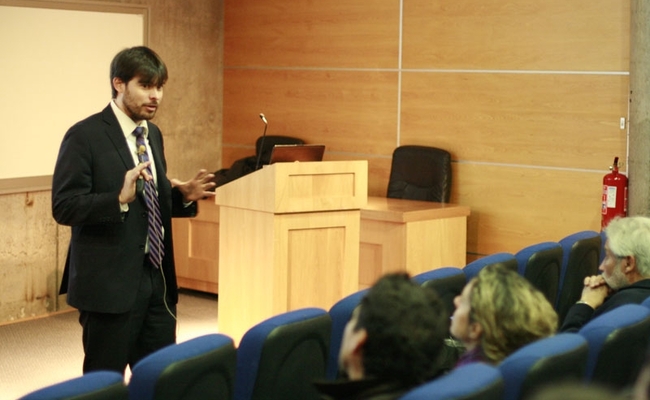Seminario Académico - Are Multinational's Retained Earnings a Capital Inflow? A Macroprudential view of FDI and local saving
Fecha de inicio: 25 de Marzo de 2015, 13:00 hrs.
Fecha de término: 25 de Marzo de 2015, 14:00 hrs.
El Seminario se realizará el miércoles 25 de marzo de 13:00 a 14:00 hrs, en la Sala P-307 de la FEN
El Departamento de Economía de la Universidad de Chile tiene el agrado de invitar a usted a un nuevo Seminario Académico:
Título - Are Multinational's Retained Earnings a Capital Inflow? A Macroprudential view of FDI and local saving
Autores - Rodrigo Wagner (Universidad de Chile), Erwin Hansen (Universidad de Chile)
Presentador - Rodrigo Wagner
Abstract - From a macroprudential standpoint Foreign Direct Investment (FDI) is usually identified as a safer capital inflow. This paper qualifies this conventional wisdom remarking that there are meaningful differences depending on the type of FDI. We pay special attention to foreign multinationals' savings decisions in the country, called Retained Earnings FDI (RE-FDI). These, if invested in fixed assets, arithmetically create a current account deficit despite the potential lack of cash crossing borders. Given that standard measures of Gross National and Domestic Saving are insensitive to multinationals' saving, we propose a new indicator that treat these RE-FDI in a way that is indistinguishable from national corporate savings: Gross Local Saving (GLS).
Empirically we show that, first, FDI is under some circumstances more procyclical than other flows, but mostly because of the locally generated RE-FDI. In many dimensions the cyclical behavior of RE-FDI is closest to the one of National Savings rather than to other types of capital inflows. While RE-FDI comoves positively with national savings, nonRE-FDI comoves against savings. Second we find that as countries become more financially open they increase their RE-FDI. The commodity boom is also a factor behind RE-FDI in commodity countries. Finally we explore the relation between capital flows and crises. While non-RE-FDI associates to a lower probability of sudden stops, RE-FDI is not statistically associated with these events. A large stock of RE-FDI, if hoard in liquid instruments, could increase the risk of bunching capital outflows, for example when commodity prices drop. Overall, our results suggest it is worthwhile for macro-prudential monitoring to unpack FDI and consider gross local saving.
El Seminario se realizará el miércoles 25 de marzo de 13:00 a 14:00 hrs, en la Sala P-307 Tercer Piso del edificio Placa de la Facultad de Economía y Negocios de la Universidad de Chile, ubicada en Diagonal Paraguay 257.
| Archivos | |
|---|---|
| Are Multinational's Retained Earnings a Capital Inflow A Macroprudential view of FDI and local saving | Descargar Archivo |
